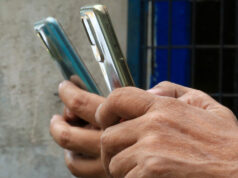
TAIPEI — Taiwan’s Foxconn and Taiwan Semiconductor Manufacturing Co. (TSMC) said on Monday they had reached deals to buy 10 million doses of Germany’s BioNTech SE’s coronavirus disease 2019 (COVID-19) vaccine, putting the total cost of the highly politicized deal at around $350 million.
Taiwan’s government has tried for months to buy the vaccine directly from BioNTech and has blamed China, which claims the self-ruled island as its own territory, for nixing an agreement the two sides were due to sign earlier this year. China denies the accusations.
Last month, facing public pressure about the slow pace of Taiwan’s inoculation program, the government agreed to allow Foxconn’s founder Terry Gou, as well as TSMC, to negotiate on its behalf for the vaccines.
BioNTech’s Chinese sales agent Shanghai Fosun Pharmaceutical Group Co. Ltd. said on Sunday that an agreement had been signed, but did not give details of a delivery timeframe.
Mr. Gou wrote on his Facebook page that he was “gratified” the deal had been completed, which will see Foxconn and TSMC each buy 5 million doses, to be donated to the government for distribution.
“But we can’t relax, because we will continue to work hard to push for the delivery time and quantity,” he said.
“However, this batch of vaccines delivered directly from the German factory I believe will help Taiwanese society to increase confidence and offer respite in the face of the epidemic.”
Taiwan’s Cabinet said the vaccines would be donated for free to the government.
Cabinet spokesman Lo Ping-cheng told reporters the government was also looking to buy 15 million “next generation” Moderna Inc. shots for next year and the year after.
TAIWAN TRANSFIXED
The BioNTech vaccine drama has transfixed Taiwan and dominated headlines. While a relatively small domestic coronavirus outbreak is largely under control, only about a tenth of its 23.5 million people have received at least one of a two-shot regime.
TSMC and Foxconn, both major Apple Inc. suppliers, said in a joint statement the first BioNTech vaccines were not expected to arrive until late September at the earliest, shipped directly from Germany, but did not say how many would come at first.
Mr. Gou said Beijing did not interfere in the talks.
“During the negotiation period after my donation was proposed, there was no guidance or interference from the Beijing authorities in the mainland on the vaccine procurement process,” he said.
BioNTech also confirmed the deal but referred to Taiwan as the “Taiwan region,” using the wording preferred by China’s government so as not to imply the island is a separate country.
Fosun deleted an earlier statement from its WeChat account citing BioNTech Chief Executive Ugur Sahin as saying the company was glad to be able to supply the vaccine to Taiwan, though BioNTech did include that quote in its statement.
Fosun did not immediately respond to a request for comment on why those comments were removed.
Taiwan has millions of vaccines on order, mainly from AstraZeneca Plc and Moderna, while the United States and Japan have together donated almost five million doses to the island to help speed up vaccinations.
A person familiar with the talks told Reuters the involvement of TSMC and the unconditional US and Japanese vaccine donations had created a global environment that was favorable to Taiwan and made it hard for China to obstruct the deal. — Ben Blanchard and Yimou Lee/Reuters



